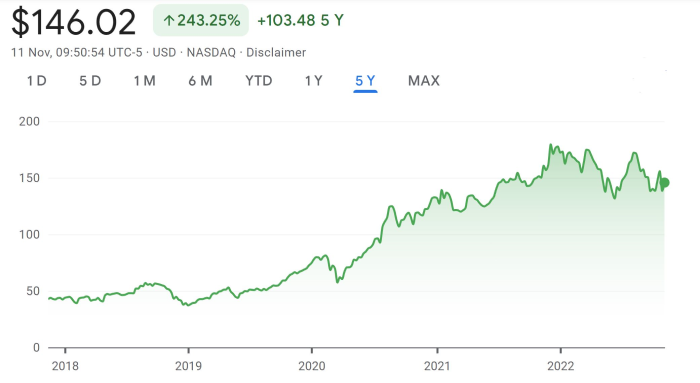Shares come up a lot in discussions about finance, but newcomers might not know exactly what they are or how they work.
They’re one of the main assets that people invest in to make money, so knowing what they are is important when you’re at the start of your investment journey.
Today, we’ll be breaking down what shares are so that first-time investors can understand the industry lexicon and invest their money with confidence.
When a company wants to expand its business, one way of raising a lot of money quickly is by selling shares. If you buy a share in a company, that means you have part ownership of that business. These are sometimes referred to as stocks, but the terms mean the same thing.
The company issuing shares is able to use that new money to re-invest in the business and grow at a faster rate than it would have if it raised the money itself.
As an investor, you then have two ways to make money. First, is the share price rising. As the company improves and makes more money, investors will want to pay more for the shares.
This is because there are a limited number of shares in a business, so investors will pay more money to own part of a successful company.
Conversely, share prices can also go down if a company is performing poorly because investors may sell their shares. There are then more shares for sale, but fewer people interested in buying them, so they are sold at a cheaper price.
Most investors make money by buying shares at a low price and selling them at a higher price.
For example, if you bought £100 worth of shares in Apple five years ago, your shares would now be worth £343 because the price went up 243% over that period.
If you sold those shares today, you would therefore have made a £223 profit on your initial investment of £100.
Share price of Apple over the past five years

Source: Google Finance
The second is through dividends, which a company can choose to pay out to shareholders rather than using the cash to invest in the business.
A company works out how much money it wants to pay out in dividends and that is divided out among shareholders.
For example, if a business reserved £100 that it wanted to pay out to its 100 investors who owned one share each, then you would receive £1.
If you owned 10 of those 100 shares, you would have a larger stake in that company and you would therefore receive a £10 dividend.
The amount an investor receives in dividends is not the same with every company – some businesses pay more than others, and some pay no dividend at all.
The rate that they are paid out to shareholders can also differ – dividends can be paid from once a year to each month, but it depends on the company.
Shares are one of the main assets people buy, but there are plenty of other things to make money from. Bonds are another way that investors increase their savings – we’ll be explaining what they are and why people invest in them in our next segment.
This is part of an ongoing series. In the first part, we explained why people invest and how inflation impacts people’s savings.





